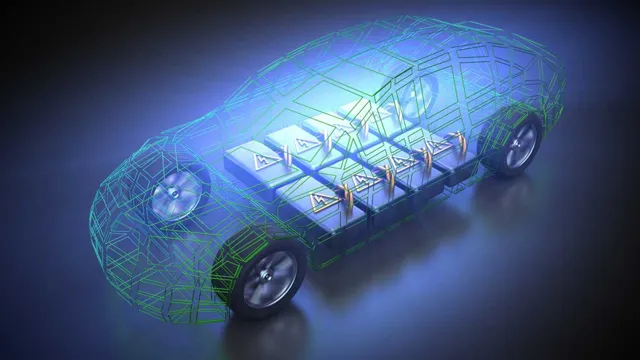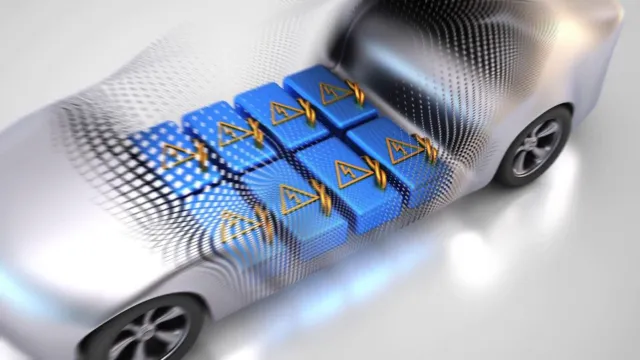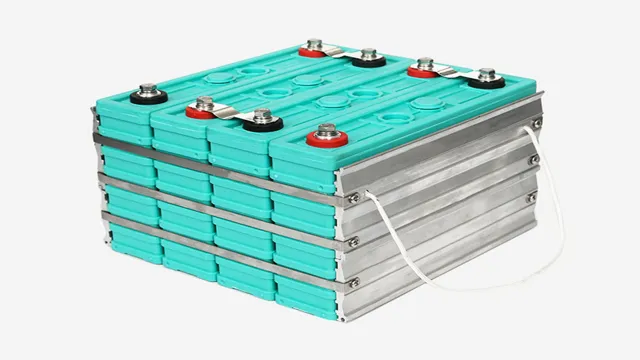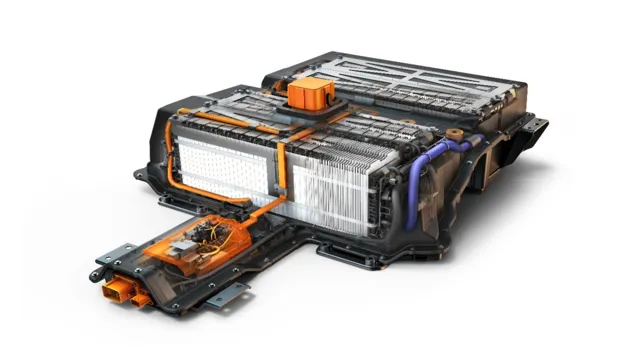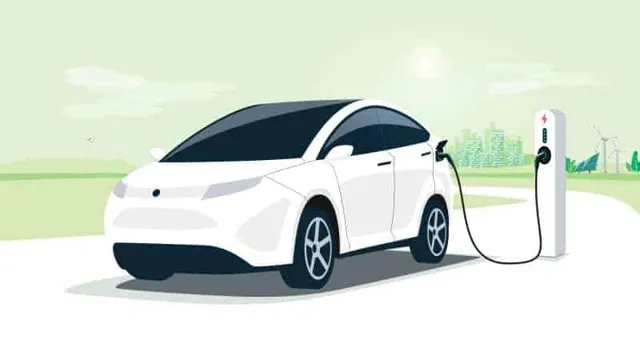Revolutionizing the Electric Car Industry: Unveiling the Latest Advancements in 100 kWh Battery Technology and its Cost
Electric cars, with their environmentally-friendly profile, are becoming increasingly popular among the masses. However, one of the biggest drawbacks to owning an electric car is the cost of the battery. With advancements in technology, the cost of electric car batteries has gone down significantly in recent years.
But still, the cost for a 100 kWh battery remains a topic of discussion among consumers. A 100 kWh battery pack is considered the standard for high-end electric vehicles, including the Tesla Model S and Model X. While the price of these batteries has been falling steadily, it still remains a significant expense for carmakers and consumers alike.
The cost of producing 100 kWh batteries depends on various factors such as raw material costs, manufacturing processes, and economies of scale. However, despite the high cost of these batteries, they offer significant advantages. A 100 kWh battery can offer a range of over 300 miles on a single charge, making it ideal for long-distance trips.
It also provides excellent acceleration and power, making it a favorite among car enthusiasts. As technology continues to improve, it is expected that battery costs will continue to come down. This will make electric cars more affordable for the masses and hopefully, help us move towards a more sustainable future.
In this blog, we will explore the factors affecting the cost of 100 kWh batteries, how car manufacturers are responding to the demand for affordability, and what the future holds for electric cars and their batteries. So sit tight and let’s explore this exciting topic together!
Overview of Electric Car Batteries
Electric car battery costs for a 100 kWh battery can vary widely depending on the manufacturer and the type of battery technology used. For example, Tesla’s Model S sedan has a 100 kWh battery pack that costs around $20,000 to replace, while other electric cars may have a similar-sized battery pack but at a lower cost. However, it is important to note that the price of electric car batteries is expected to continue to decrease in the coming years as battery technology becomes more efficient and production scales up.
This will make electric cars more accessible and affordable for everyday consumers, potentially leading to a larger adoption of electric vehicles and a reduction in carbon emissions from transportation.
Types and performances of batteries
Electric car batteries have become increasingly popular in recent years. These batteries come in various types, such as lead-acid, nickel-metal hydride, and lithium-ion. Some of the factors that determine the battery’s performance are its size, the type of chemistry used, the temperature range it is designed to operate in, the cycle life, and its specific energy and power.
For example, lithium-ion batteries are commonly used in electric vehicles as they provide higher energy density, longer life, and are more lightweight than other battery technologies. This makes them ideal for powering electric cars that require a high amount of energy for an extended period. Another factor affecting battery performance is the temperature range it is designed to operate in.
Electric car batteries perform best in temperatures between 20-25°C, and operation outside this range can lead to accelerated degradation, reducing overall battery life. Overall, understanding the different types and performances of electric car batteries can help drivers make informed decisions when choosing an electric vehicle.
Impact on environmental footprint
Electric car batteries have gained significant attention in recent years because of their potential to reduce environmental impact. Unlike traditional combustion engines, electric cars rely on rechargeable batteries to power their motors. These batteries are typically made up of lithium-ion, a type of rechargeable battery that has been used in portable electronics for years.
However, electric car batteries differ in terms of size, capacity, and durability. They are larger and more powerful, capable of providing long-range driving on a single charge. Moreover, electric car batteries have a lower environmental impact compared to traditional car batteries, as they don’t contain lead and other harmful chemicals.
Additionally, electric car batteries can be recycled, reducing the amount of waste generated from automotive battery disposal. Despite their advantages, electric car batteries still pose some environmental challenges. For example, the manufacturing of battery components and the disposal of used batteries can have significant environmental impacts.
However, innovative recycling methods and improvements in battery manufacturing are helping to mitigate these challenges. Overall, electric car batteries hold immense potential to reduce the environmental footprint of the transportation sector.
Cost breakdown for 100 kWh battery
If you’re in the market for an electric car, you’ve probably heard a lot about the cost of the battery. And if you’re looking for a car with a range of 250 miles or more, you’re probably looking at a battery that has a capacity of around 100 kWh. So what does it cost to produce a battery like that? According to industry estimates, the cost of producing a 100 kWh battery is currently around $10,000-$15,000.
This represents a significant portion of the overall cost of the car itself, but it’s important to keep in mind that battery costs are expected to continue to decline in the coming years as technology improves and economies of scale are achieved. In fact, estimates suggest that by 2025, the cost of a 100 kWh battery could be as low as $5,000-$7,000. While this is still a significant cost, it’s important to remember that electric cars also offer significant savings in terms of fuel costs and maintenance over the lifetime of the car.
Raw material costs
Raw material costs play a crucial role in the overall pricing of electric vehicle batteries. For instance, a typical 100 kWh battery requires a combination of different metals and chemicals to function. Lithium-ion batteries, the most common batteries used in EVs, require cobalt, nickel, and manganese, among other materials.
The cost varies by region, with cobalt, for instance, being more expensive in countries with political instability. Labor costs also affect the final price. It’s worth noting that battery raw materials’ prices have been declining in recent years, thanks to increased production with high economies of scale.
This trend is expected to continue, making EVs more accessible to consumers worldwide.
Manufacturing and labor costs
Manufacturing and labor costs for 100 kWh battery When talking about the cost of manufacturing a 100 kWh battery, there are several different factors to consider. The first and most obvious is the cost of the raw materials that go into making the battery. This includes things like lithium, which is used in the battery’s electrodes, as well as other metals like cobalt and nickel.
In addition to the raw materials cost, there are also the costs of actually manufacturing the battery itself, including the labor costs associated with assembling the various components. Beyond that, there are also other ancillary costs that need to be considered, such as the cost of transporting the completed batteries to their final destination. All of these factors can add up quickly, and it’s important for manufacturers to carefully balance all of these costs in order to produce a battery that is both affordable and reliable.
When it comes to the final cost of a 100 kWh battery, there’s no one-size-fits-all answer, as the actual cost will depend on a variety of different factors. However, by carefully assessing all of these different costs and working to minimize them as much as possible, manufacturers can produce batteries that are both cost-effective and high-performing.
Installation and maintenance costs
When it comes to installing and maintaining a 100 kWh battery, there are a few key costs to keep in mind. First, the actual battery itself will likely be the biggest expense. Depending on the brand and type of battery you choose, this could range anywhere from $20,000 to $50,000 or more.
Installation costs will also need to be factored in, and this will vary depending on the size of your battery and your location. In general, you can expect to pay between $2,500 and $10,000 for installation. Ongoing maintenance costs are another consideration, as you’ll need to periodically replace components like the battery’s cells.
You may also need to pay for regular inspections and repairs, which can add up over time. Overall, the costs of a 100 kWh battery can be significant, but the potential benefits in terms of energy savings and reducing your carbon footprint can make it a worthwhile investment.
Electric Car Battery Cost Comparison
Looking to invest in an electric car with a 100 kWh battery? It’s important to understand the costs associated with it. One of the biggest factors influencing the price of an electric car is the battery price. Currently, electric car battery costs are steadily declining, which is a good sign for consumers.
However, a 100 kWh battery will still set you back a considerable amount. Estimates suggest that an electric car battery cost for a 100 kWh battery could range from $10,000 to $15,000. That’s a significant amount of money, but when you consider the long-term cost savings associated with electric vehicles, it may be worth the investment.
Plus, with advancements in technology, it’s likely that the cost of electric car batteries will continue to decrease in the coming years. If you’re considering purchasing an electric car with a 100 kWh battery, it’s important to factor in the battery cost, but don’t let it deter you from making a smart and eco-friendly choice for your transportation needs.
Comparison with gasoline car fuel costs
When it comes to comparing the cost of an electric car to that of a gasoline car, one of the most significant factors to consider is the cost of fuel. While gasoline vehicles rely on a steady stream of gasoline to run, electric cars have batteries that need to be charged regularly. Many people assume that the cost of electricity will be higher than gasoline, but in reality, electric cars are much more cost-effective.
In fact, the average cost to charge an electric car battery is just a fraction of what it would cost to fill up a gasoline car’s tank. With an electric car, you can save a significant amount on fuel costs over time, making it a great choice for anyone looking to save money on their transportation needs. If you’re considering an electric car, compare the cost of fuel between gas and electric cars to see just how much you could save.
Comparison with electric utility costs
When it comes to the cost of electric car batteries, many people wonder how it compares to the cost of their electric utility bill. The truth is that the two costs are not directly comparable, as the cost of an electric car battery is a one-time expense while your electric bill is an ongoing monthly expense. However, it is important to note that the cost of an electric car battery has been steadily decreasing over the last few years, making electric vehicles more affordable for consumers.
Additionally, the cost of electricity for charging your electric vehicle is typically much lower than the cost of gasoline for a traditional car. Overall, while the initial cost of an electric car battery may be higher, the long-term savings on fuel costs make it a financially wise choice for many drivers.
Factors Affecting Electric Car Battery Costs
When it comes to the cost of electric car batteries, there are several factors to consider. One major factor is the size of the battery, measured in kilowatt hours (kWh). For example, a 100 kWh battery will be more expensive than a 50 kWh battery.
Another factor is the type of battery technology used. Lithium-ion batteries are currently the most common type used in electric cars, but other types such as solid-state batteries are being developed and could potentially be cheaper in the future. The cost of raw materials such as lithium, cobalt, and nickel also play a role in battery costs, as well as the manufacturing process itself.
As demand for electric cars continues to grow and battery technology improves, it is likely that the cost of batteries will decrease over time. However, it is important to note that battery costs are still a significant chunk of the overall cost of an electric car, so it is important for manufacturers to continue to work on making electric cars more accessible to a wider range of consumers.
Conclusion
If you’re looking for a powerful battery that can get you from point A to point B without emptying your wallet, the 100 kWh electric car battery is the way to go. With its impressive capacity and growing affordability, it’s no wonder that more and more drivers are making the switch to electric vehicles. So why wait? Charge up your car and hit the road with confidence, knowing that you’ve made a choice that’s not just eco-friendly, but budget-friendly too.
“
FAQs
How much does it cost to replace an electric car battery that has a capacity of 100 kWh?
The cost of replacing an electric car battery that has a capacity of 100 kWh can vary depending on the specific make and model of the vehicle. However, on average, the cost can range from $5,500 to $12,000.
How long does a 100 kWh electric car battery last?
The lifespan of a 100 kWh electric car battery can vary depending on different factors, such as the specific make and model, the frequency of charging, and driving habits. However, on average, a 100 kWh electric car battery can last anywhere from 8 to 15 years.
What is the range of an electric car with a 100 kWh battery?
The range of an electric car with a 100 kWh battery can vary depending on different factors, such as driving conditions, temperature, and driving habits. However, on average, an electric car with a 100 kWh battery can have a range of around 250 to 300 miles on a single charge.
Can you charge a 100 kWh electric car battery at home?
Yes, you can charge a 100 kWh electric car battery at home using a Level 2 charger. However, the charging time can vary depending on the specific make and model of your vehicle and the charging capacity of the charger. On average, it can take around 8 to 10 hours to fully charge a 100 kWh electric car battery at home.

